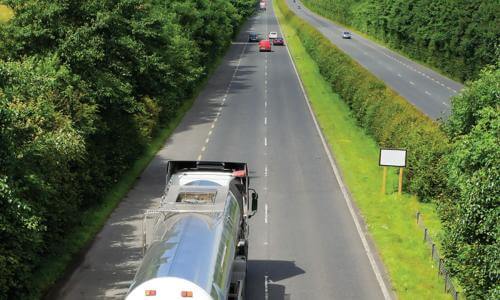The Climate Change Committee’s latest report expressed concern that freight emissions are higher than 2019 and that risks to decarbonising the sector have only grown.
Currently, only 0.4% of HGVs are ‘zero emission’, which is compared to 12.3% of new buses, according to Transport Environment.
Environmental groups, Green Alliance, Transport Action Network, Possible, and Transport & Environment are calling for the UK Government to ‘go further in embedding the polluter pays principle’ into UK freight operations.
The companies insist there be a shift from current day-based levy, to distance-based charge, with a ‘major discount’ for zero emission vehicles.
However, they insist that with any reforms, the current cost of living crisis must be taken into consideration to encourage hauliers to invest in more environmentally conscious decisions.
Richard Hebditch, Director at Transport & Environment UK said: “It’s important that public policy focuses on scaling up battery electric trucks which everyone expects to fulfill the majority of uses.
“The government can kickstart their rollout by getting the incentives right, like lowering the cost of the HGV levy compared to polluting diesel trucks. They also need to help with the initial higher purchase price, with the UK offering one of the lowest purchase grants of any major European country.”
Adding, Chris Todd, Director at Transport Action Network said: “The road freight sector urgently needs to transition to cleaner vehicle types, and we need to increase the proportion of our freight transported by rail.
“Battery electric trucks are one solution and while costs are falling, more needs to be done to make them cost competitive with diesel trucks. Distance based charging is one solution that can help that.”







